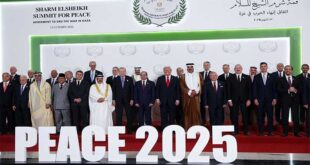Madagascar has become the latest flashpoint in a growing wave of youth-driven revolts sweeping across continents. What began as protests over blackouts and water shortages quickly escalated into a generational uprising that forced President Andry Rajoelina to flee the country, a stunning collapse that underscores how Gen Z movements are reshaping global politics from Africa to Asia.
As officials confirmed Rajoelina’s departure aboard a French military aircraft, the world witnessed a familiar pattern: digitally coordinated youth unrest toppling entrenched leaders in fragile states. Like earlier uprisings in Nepal and Morocco, Madagascar’s revolt was not orchestrated by opposition elites, but by a connected, frustrated, and fearless young generation demanding dignity, opportunity, and accountability.
The Initial Spark:
The unrest began on September 25, triggered by widespread power outages and water shortages that left much of Madagascar’s 30 million citizens in hardship. But within days, the movement evolved into something larger, a nationwide rebellion against corruption, inequality, and decades of government neglect.
Madagascar’s youth, which notably accounts for more than half of the population, are under age 20, have grown up in one of the world’s poorest nations. Despite rich natural resources, from vanilla and nickel to cobalt and shrimp, an estimated three-quarters of Malagasy citizens live in poverty, and GDP per capita has fallen by nearly 45% since independence.
What distinguishes this uprising from past Malagasy unrest is its digital origins. The protests were organized through encrypted social platforms like Discord, TikTok, and Telegram, under a movement calling itself Gen Z 261 (Madagascar’s country code). Similar to movements in Morocco (“Gen Z 212”) and Nepal (“Gen Z 977”), organizers bypassed political parties entirely, connecting through humor, viral memes, and grassroots messaging to coordinate demonstrations.
The Fall of President Rajoelina:
President Andry Rajoelina, long accused of authoritarian tendencies and self-enrichment, quickly lost his grip on power. His regime, already weakened by economic mismanagement and public mistrust, faced its breaking point when elite military units began defecting to join protesters.
The most crucial defection came from CAPSAT, an elite corps that had ironically helped Rajoelina seize power in his 2009 coup. When CAPSAT commanders announced they would not open fire on civilians and instead escorted demonstrators through Antananarivo’s Independence Square, the balance shifted irreversibly in favor of the protesters.
By October 12, Rajoelina boarded a French military aircraft from Sainte Marie airport, reportedly under a deal brokered with President Emmanuel Macron. His planned national address that evening was abruptly canceled, and within hours, he had vanished from Malagasy airspace.
His departure leaves a constitutional vacuum. Under Madagascar’s charter, Senate leader Jean André Ndremanjary has assumed temporary control, though his legitimacy remains contested by the protesters who view the entire political class as complicit in corruption.
A Generation With Grievances:
In interviews across the capital, protesters articulated a common grievance: a generation cut off from opportunity.
“In sixteen years the President and his government have done nothing except enrich themselves while the people stay poor”, said Adrianaivony Fanomegantsoa, a 22 year old hotel worker.
The protesters’ slogan, “We have nothing left to lose but our future,” captures the generational desperation shared across borders. Like in Nepal, where youth protests in September forced Prime Minister Pushpa Kamal Dahal to resign, and in Morocco, where students and workers revolted over inequality and failing public services, Madagascar’s young people are rejecting systems that exclude them from a fair quality of life.
This new Gen Z politics transcends ideology. It is leaderless but not aimless, unified by frustration with corruption, inequality, and political stagnation. While the Arab Spring was driven by ideals of democracy, today’s Gen Z uprisings are driven by survival, jobs, dignity, and the right to be heard in societies that dismiss them as apathetic.
Economic Roots, Political Consequences:
Madagascar’s crisis cannot be separated from its economic collapse. Once a model of stability in the Indian Ocean, the island has suffered repeated political turmoil, deterring foreign investment and eroding basic services. Inflation has soared while wages stagnate.
A monthly income of 300,000 ariary ($67) barely covers food and transport. Rural areas, where infrastructure is crumbling, saw the worst violence as frustrated laborers and farmers joined students and unemployed youth. In the southern agricultural town of Ait Amira, protesters torched banks and local government offices, symbolizing a revolt not just against politics but the entire economic system.
The collapse of faith in institutions has been equally severe. Surveys show trust in political parties fell from 50% to 33% in a single year, and even traditional authorities like the Church and army now face public skepticism.
The Global Youth Pattern:
Madagascar’s uprising is not an isolated event, it is part of a new global trend in youth-driven political disruption. In Nepal, young people mobilized online against political corruption and unemployment, culminating in the fall of the prime minister. In Morocco, mass protests over healthcare, inequality, and the 2030 World Cup investments led to dozens of deaths and the first major generational revolt since 2011. In Peru, students brought the country to a standstill over corruption scandals and inflation. Each of these movements share three defining characteristics; digital coordination of the youth, distrust in government institutions, and economic despair.
These protests are not centrally planned but are efficiently growing and adapting rapidly. Their power lies in their ability to capitalize on streams of communication that older generations, who are likely to be in political power, are unaware of. However, the true strength lies in the inspiration one protest provides the next. When one government silences dissent, another protest flares elsewhere, linked by hashtags, livestreams, and shared outrage.
France’s Colonial Shadow:
France’s role in Rajoelina’s departure, facilitating his evacuation on a French military plane, has reignited colonial resentments in its former African territories. Many protesters accuse Paris of “protecting elites” rather than supporting democratic transitions, echoing recent anti-French sentiment across the Sahel.
For Western governments, the crisis poses a dilemma. How to support democratic youth movements without appearing to orchestrate regime change? The African Union and United Nations have called for restraint, but their appeals carry little weight among a generation skeptical of foreign involvement.
If stability is restored, Madagascar’s interim authorities face immense challenges: rebuilding a collapsing economy, restoring security, and addressing the grievances of millions of young citizens who now know they can change their government through collective pressure.
A New Era of Youth Power:
The fall of Madagascar’s president signals a historic moment, the first African government toppled by the Gen Z era. It is both a warning and a precedent. Across the developing world, societies that fail to deliver jobs, transparency, and dignity to their youth risk facing the same fate.
Madagascar’s revolt was not just about electricity or corruption; it was about a generation refusing invisibility. These movements may lack formal leadership, but they have what many governments lack: unity, authenticity, and urgency.
If the 20th century belonged to ideologies, the 21st belongs to youth movements with smartphones and nothing left to lose. The flight of Rajoelina from Antananarivo to exile may mark more than the fall of a government, it may mark the rise of Gen Z as a political force reshaping the developing world.
 Geostrategic Media Political Commentary, Analysis, Security, Defense
Geostrategic Media Political Commentary, Analysis, Security, Defense





